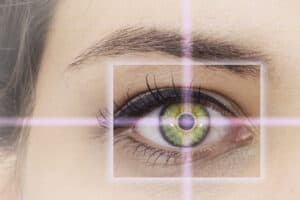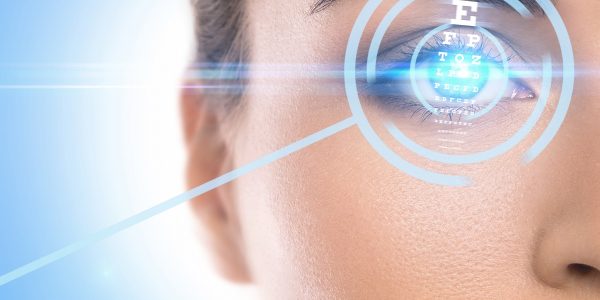
Myth #1: Everyone is a candidate for LASIK.
While we wish it were true, not everyone is a suitable candidate for LASIK surgery. The procedure is designed to only treat specific refractive errors such as nearsightedness, farsightedness and astigmatism. Additionally, patients with thin corneas may not be eligible for LASIK. The only way to know whether LASIK is right for you is by scheduling a consultation with Optima Eye. If you are not a suitable candidate for LASIK, you may be eligible for other vision correction procedures.
Myth #2: LASIK surgery can make me go blind.
LASIK surgery has been proven to be safe and effective, and most associated risks and complications are mild. Possible side effects include halos, dry eye and irritation. Complications are rare and can be addressed right away. To minimize risks, it is important to choose an experienced and qualified LASIK surgeon, who is also a cornea specialist, and follow their pre-op and post-op instructions.
Myth #3: LASIK surgery is painful.
LASIK surgery itself is generally painless. During the procedure, numbing eye drops are used to keep the eyes comfortable. Immediately after the procedure you may feel some temporary discomfort. Dr. Mandel can prescribe Motrin and special eye drops to relieve these post-op symptoms.
Myth #4: LASIK surgery costs more than glasses and contacts.
When you consider the life-long costs of glasses and contacts, LASIK is actually less expensive. The cost of eyeglasses, frames, contact lenses, not to mention cleaning supplies, can add up to tens of thousands of dollars throughout your lifetime. Not only is LASIK a worthwhile investment, it can also help you save money in the long term.
Myth #5: After LASIK, I will never need glasses or contacts.
LASIK surgery has an outstanding success rate; more than 95 percent of LASIK patients achieve 20/20 vision or better. This means that most patients no longer need to rely on glasses or contacts after LASIK.
It is important to note, however, that even after successful LASIK results, you may need reading glasses after the age of 45. LASIK does not protect against age-related conditions such as cataracts and presbyopia. These changes in vision are age-related and can even affect people with perfect vision.
Do you want to learn more about LASIK surgery? Trusted eye surgeon Mark R. Mandel, MD, of Optima Eye will gladly answer all of your questions. To schedule a personal consultation, please email us at mmandel@optimaeye.com.



